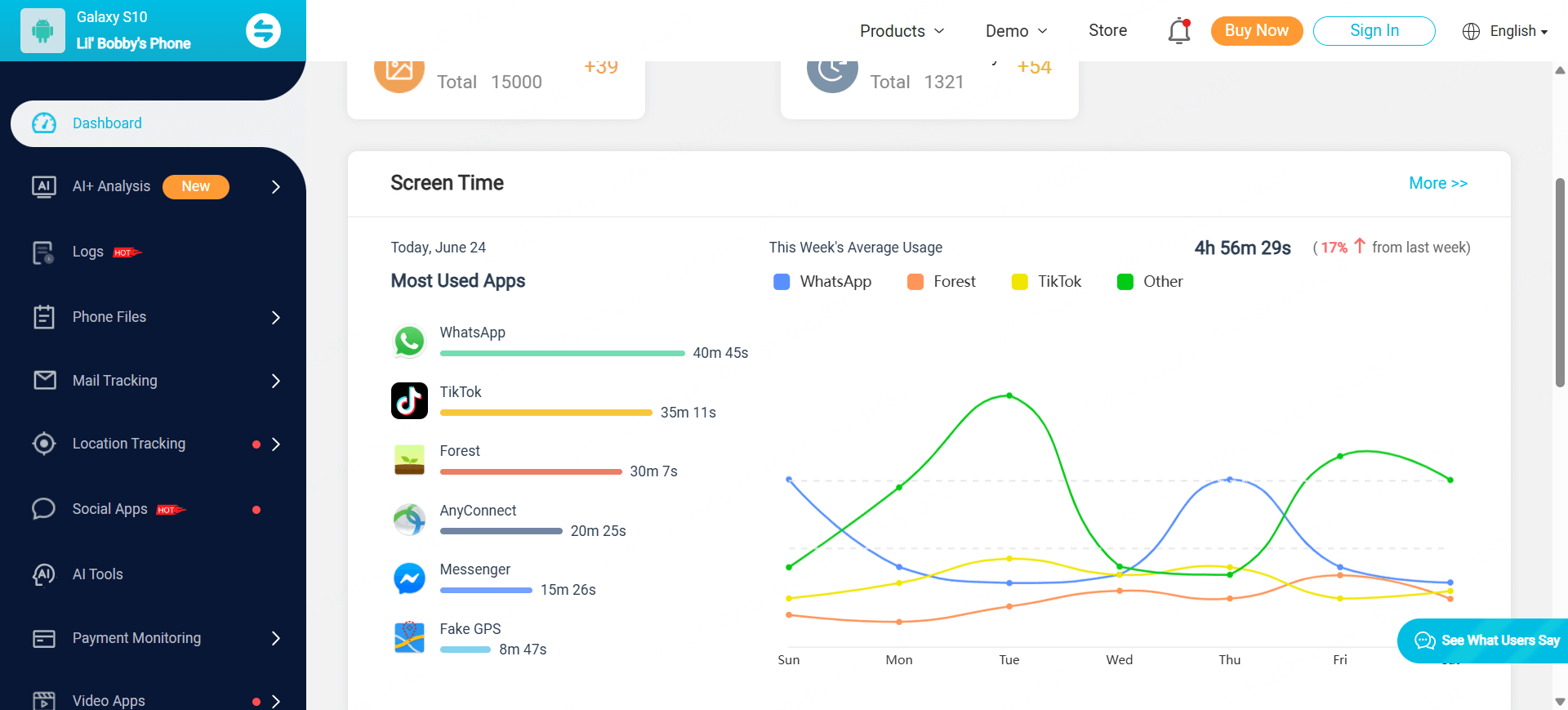ClevGuard Support: Monitor Devices with Others' Permission.

As their influence grows, so do concerns about their addictive nature and the ethical implications of their monetization systems. This article explores how gacha games work, why they're so engaging, and what users should know to navigate them wisely.
Table of Contents
Part 1: What Are Gacha Games?
Part 2: The Psychology Behind the Gacha Game Addiction
Part 3: The Business Model: Monetization and Microtransactions
Part 4: Global Regulation and Ethical Concerns
Part 5: Are Gacha Games Safe? Understanding the Risks
What Are Gacha Games?
Gacha games revolve around a simple yet powerful mechanic: spend in-game currency to receive a random virtual item. These could be characters, gear, or power-ups. The process resembles pulling from a vending machine—except instead of snacks, you're getting digital assets.
The name "gacha" comes from gachapon, Japan's capsule-toy dispensers. In a typical gacha game, players earn or buy currency to "roll" for unknown items, with rarer items usually being more desirable and powerful. This creates a cycle of hope and reward, and it's this randomness that drives much of the genre's appeal.
Popular examples include Genshin Impact, Fate/Grand Order, and Arknights—each blending gacha with RPG elements, storytelling, or strategy gameplay. It's worth noting that gacha mechanics are also increasingly embedded in games not traditionally viewed as gacha titles.

Image Credit: Blue Archive
The Psychology Behind the Gacha Game Addiction
What makes gacha games so compelling? Intermittent reinforcement is at the heart of their design. Players don't know when they'll get what they want, and this randomness taps into the same psychological systems that make gambling addictive.
Each "pull" is accompanied by anticipation and visual or audio cues, heightening the experience. Players chase "ultra-rare" items during limited events, often experiencing FOMO (Fear of Missing Out) if they skip a banner. Over time, the brain learns to associate pulling with excitement—even if the outcomes are often disappointing.
The dopamine loop created by rare wins keeps players engaged and returning. This is especially potent for those prone to compulsive behaviors or with limited impulse control.
The Business Model: Monetization and Microtransactions
Gacha games thrive on a freemium model—free to download, but heavily monetized through in-app purchases. Players are encouraged to buy in-game currency, often in packages that offer better value at higher price points.
Game developers design "tiers" of rewards with low drop rates for rare items. Many games feature time-limited events that pressure users into spending before a reward is no longer available.
Spending is often gamified. There are terms like "whales" (top spenders), and many games even feature leaderboards for high-spending users. The system creates a sense of social proof and status around spending.
The complexity of virtual currencies often masks the real-world value of purchases, making it difficult for users to track actual spending.
Global Regulation and Ethical Concerns
The monetization model of gacha games has raised concerns globally. Some governments have started introducing regulations to protect consumers, particularly younger players.
Japan banned "complete gacha" mechanics that required collecting multiple rare items to earn a reward.
China mandates the disclosure of drop rates and caps the number of loot boxes per day.
Belgium and the Netherlands banned certain loot box models deemed similar to gambling.
Spain has proposed rules that include proof-of-age checks, spending caps, and transparency requirements.
These efforts highlight how ethically murky the gacha model can be, especially when combined with aggressive monetization and emotional triggers.
Are Gacha Games Safe? Understanding the Risks
Gacha games aren't inherently dangerous, but their structure makes them vulnerable to overuse and overspending.
Some players develop a dependency on the emotional highs of rolling, and the blurred line between game and gambling can be problematic—particularly for those with impulse control issues. Since many games mask their gacha elements behind engaging gameplay, users might not even realize how deeply monetization is embedded.
Younger players may especially struggle with tracking spending or resisting temptation, which is why it's important to monitor behavior and limit exposure. This issue also intersects with broader trends in digital entertainment—see our article on what is a VTuber for another emerging form of engagement with blurred boundaries between entertainment and consumption.
How to Play Responsibly or Reduce Potential Harm
Here are some ways to enjoy gacha games without falling into harmful patterns:
Set in-game purchase limits or turn off purchases entirely on device settings.
Establish clear time limits for game use to prevent excessive screen time.
Avoid storing payment details on devices to reduce impulse spending.
Talk openly about in-game mechanics and spending strategies.
Use a trusted parental control app to help monitor gaming behavior across devices.
Co-playing or reviewing games together can also be a great approach. For instance, if you're already concerned about popular animation-style games, you might find our review on Gacha Life's safety helpful.

An Array of Amazing Features
- Track cell phone location in real time and view location history
- Check all incoming and outgoing calls & SMS
- Spy on social media apps like WhatsApp, Instagram, Snapchat, Facebook, Viber, WeChat and more
- Remotely access the files on the target phone, like contacts, photos, call logs, etc.
About Parental Control Tool and How You Can Use It
For those who want to keep gaming habits healthy and screen time balanced, using a parental control tool is one of the most effective strategies. Tools like the ClevGuard parental control app are designed to help monitor, manage, and guide digital behavior across multiple devices—without being overly invasive.
With features like app activity tracking, real-time location, screen time limits, and app blocking, you can set appropriate boundaries for gaming sessions, including those spent on gacha games. One especially helpful feature is scheduling device usage, which helps ensure that games aren't being played during study hours or late at night.
The ClevGuard app also provides detailed reports about app usage, so you can detect any patterns that might signal overuse or addictive tendencies. If a new game is downloaded, you can receive instant alerts and choose whether to allow or restrict access.

Beyond technical features, using a tool like this supports a more open dialogue around gaming. It helps shift the conversation from reactive monitoring to proactive digital wellness—something that benefits users of all ages. Whether it's gacha games or other content-rich platforms, having visibility and control is key to building healthy digital habits.
Conclusion
Gacha games are more than just a trend—they're a powerful intersection of gaming, psychology, and monetization. While they offer engaging experiences, their design can lead to unhealthy habits, especially when users are unaware of how they function.
By staying informed, using the right tools, and encouraging mindful engagement, it's entirely possible to enjoy gacha games without falling into their more harmful patterns. Digital literacy, awareness, and moderation remain the best safeguards in a rapidly evolving online gaming landscape.



